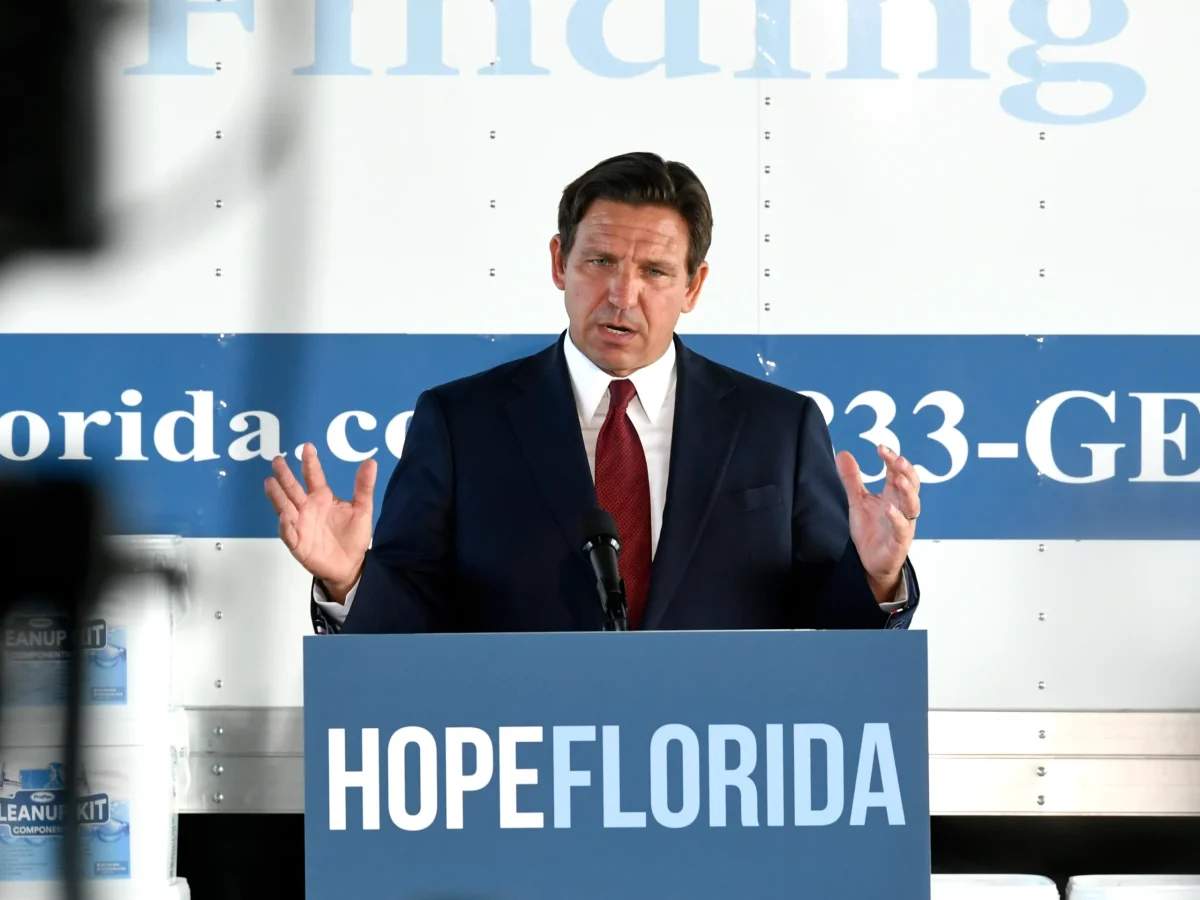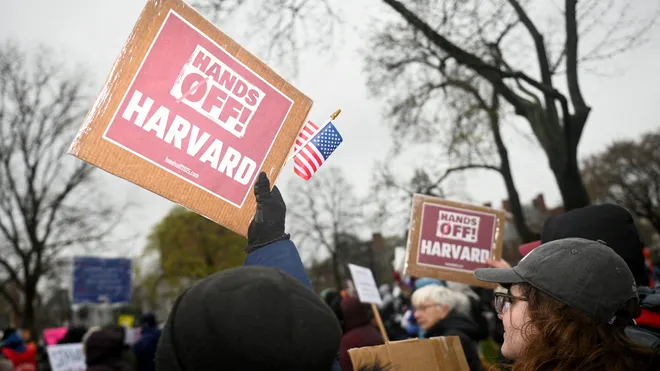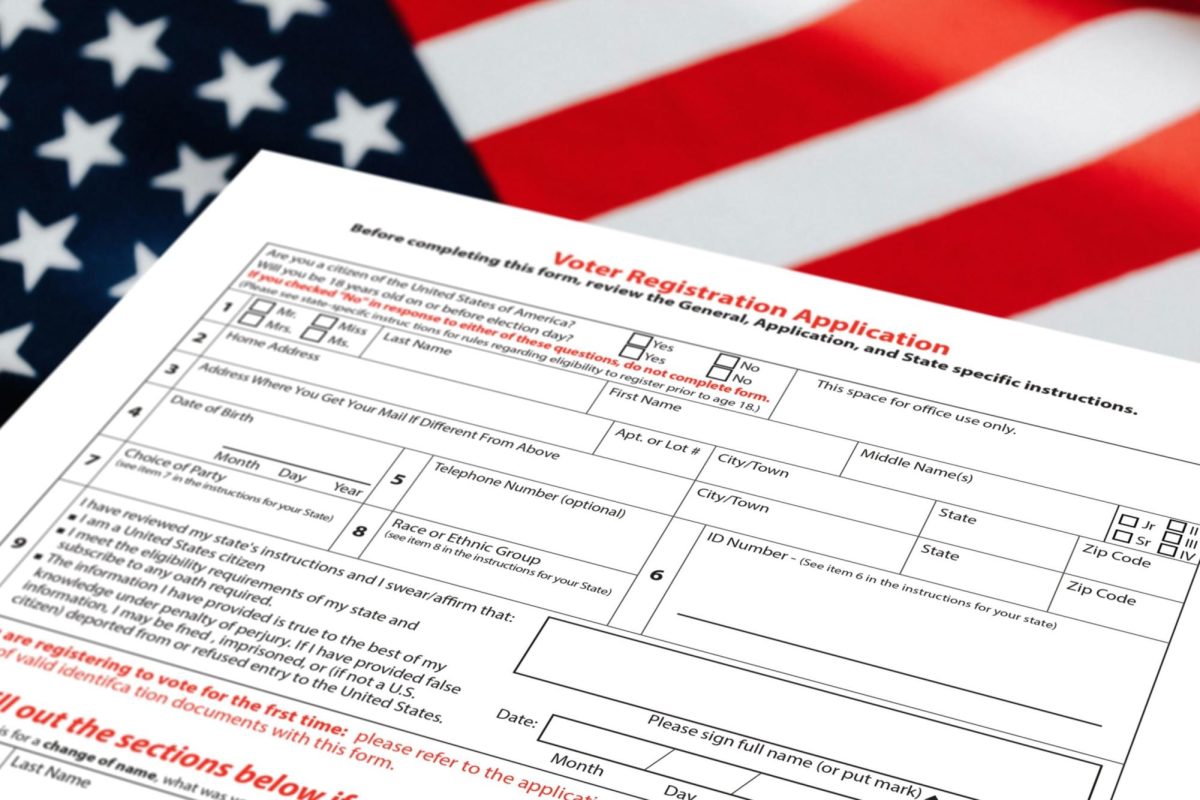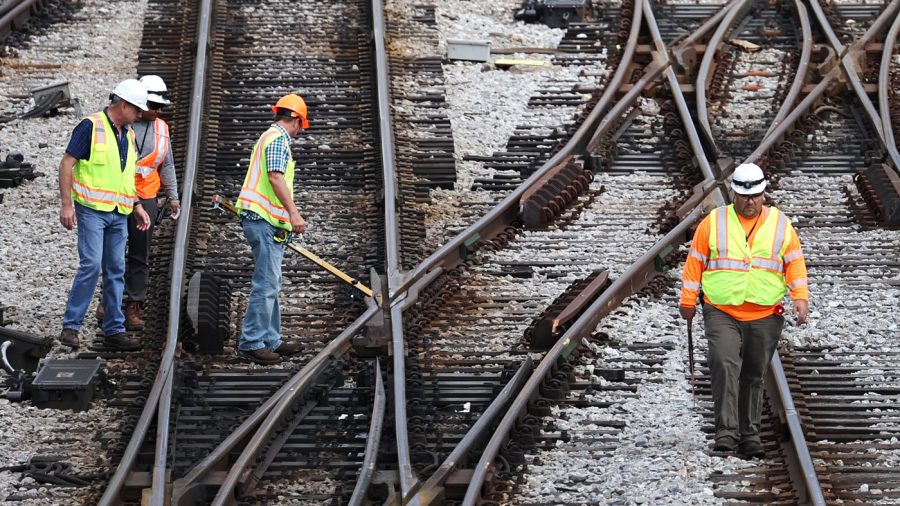Congress Intervenes with Railroad Workers New Contract to Prevent Economic Shutdown
Workers service the tracks at the Metra/BNSF railroad yard outside of downtown on September 13, 2022 in Chicago, Illinois.
December 14, 2022
Congress just voted to impose a contract between railroad companies and labor unions to prevent potential economic disaster that would follow a railroad strike. However, rail workers and their unions still don’t find this contract to alleviate their concerns.
Previous contracts between multiple labor unions and railroad operators ended in 2018. Negotiations for a new contract have been off and on for the past two years causing the Biden administration to step in, hoping to reach a deal to avoid a strike.
Four of the twelve unions — which include the majority of rail workers — voted against an agreement the Biden administration made in September, but President Biden invoked the Railway Labor Act to intervene with these negotiations and blocked a strike. With the quickly approaching December 9th deadline, President Biden urged Congress to pass a contract to prevent a rail shutdown that could cost the country two billion dollars a day.
President Biden has called himself “the most pro-union president” but many argue that this move was just the opposite, citing that he didn’t allow for the operators and rail workers to reach an agreement.
Sick days are the biggest reason for why these negotiations weren’t sticking. Rail workers and railroad companies can’t seem to agree on what is fair when it comes to paid leave. While operators claim the five weeks of paid leave a year is plenty, rail workers point out that this only applies when notice is given. They argue that if they wake up sick and mark off that they aren’t able to work that day, they will not be paid and are even penalized.
Senator Bernie Sanders is a strong supporter of unions and has advocated for a contract which includes guaranteed paid sick days. “The rail industry, which made a record-breaking $20 billion in profits last year, must come to the table and negotiate a contract which treats their workers with respect,” said Sanders on Twitter. Senator Sanders tried to take the agreement the Biden administration negotiated and add seven days of guaranteed paid sick leave.
Ultimately, this bitter dispute came to an end before a strike could take place. With bipartisan support, Congress voted to enact the original agreement the Biden Administration negotiated without the 7 days of paid leave.




































